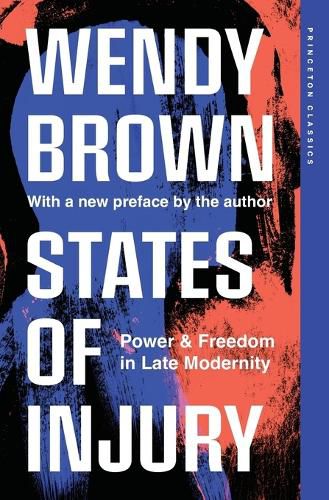A landmark work from one of our leading political theorists
A sympathetic critique that attempts to free Left politics from its own snares, States of Injury explores how woundedness became a basis for contemporary political identity. Without condemning identity politics, Wendy Brown carefully probes the varied historical forces generating them today and the ways these formative conditions constrain emancipatory desire. Along the way, she advances a novel feminist critical theory of liberalism and the liberal democratic state. She also develops an original theoretical practice that weaves together Nietzsche, Marx, Weber, Foucault, and cultural theories of gender and race to analyse contemporary political predicaments. In a new preface, Brown places States of Injury in political and intellectual context, including the rise of neoliberalism, and addresses the book's renewed relevance in today's political landscape.





